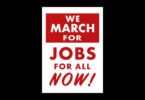Introduction
USA Jobs is one of the largest and most diverse in the world, offering opportunities across various industries. With a strong economy, technological advancements, and numerous employment options, the U.S. is a popular destination for job seekers globally. This article explores USA jobs, employment trends, qualifications, job search strategies, and career growth prospects.
Job Market Overview in the USA
The U.S. job market is influenced by several factors, including economic conditions, technological advancements, and workforce demographics. The employment rate fluctuates due to economic cycles, but certain industries remain consistently strong.
Key Industries for Employment
- Healthcare – One of the fastest-growing sectors, offering jobs like doctors, nurses, healthcare administrators, and medical technicians.
- Technology – IT jobs, including software development, cybersecurity, and data science, are in high demand.
- Finance – Banking, investment, and financial planning roles provide lucrative opportunities.
- Education – Teachers, professors, and educational administrators play a crucial role in society.
- Manufacturing – Factory workers, engineers, and supply chain managers contribute to the industrial sector.
- Retail and Hospitality – Sales representatives, hotel managers, and customer service professionals find ample opportunities.
- Construction – Skilled laborers, architects, and civil engineers are in high demand.
- Government and Public Administration – Opportunities in law enforcement, public policy, and civil services provide stable career paths.
- Transportation and Logistics – Truck drivers, supply chain managers, and warehouse personnel are essential for economic activity.
- Entertainment and Media – Jobs in film, television, journalism, and digital content creation are on the rise.
Requirements for Getting a Job in the USA
Each job has specific qualifications, but general requirements include:
Education and Skills
- A high school diploma for entry-level jobs.
- A bachelor’s or master’s degree for specialized roles.
- Technical certifications in areas like IT, healthcare, or finance.
- Strong communication, problem-solving, and technical skills.
Work Experience
- Experience levels vary from entry-level to senior roles.
- Internships and apprenticeships help gain relevant experience.
- Volunteering and freelance work can enhance job applications.
Work Authorization
- U.S. citizens and permanent residents can work without restrictions.
- Foreign workers need work visas (H-1B, L-1, or O-1) to be employed legally.
- Employers may sponsor foreign workers for long-term employment.
Job Search Strategies
Finding a job in the USA requires a strategic approach. Here are some effective methods:
Online Job Portals
- USAJobs.gov – The official site for federal government jobs.
- LinkedIn – A professional networking site with job listings.
- Indeed – One of the largest job search engines.
- Glassdoor – Provides job listings and company reviews.
- Monster – A well-known job search platform.
- ZipRecruiter – Offers AI-powered job search options.
- CareerBuilder – Connects job seekers with recruiters.
Networking
- Attend industry conferences and job fairs.
- Connect with professionals on LinkedIn.
- Join professional organizations related to your field.
- Reach out to mentors and career coaches.
Resume and Cover Letter
- Tailor your resume for each job application.
- Highlight relevant skills and achievements.
- Use a professional format.
- Keep it concise and impactful.
- Include quantifiable results in past job roles.
Job Interviews
- Research the company before the interview.
- Practice common interview questions.
- Dress professionally and demonstrate confidence.
- Follow up with a thank-you email after the interview.
Employment Benefits in the USA
U.S. jobs offer various benefits, including:
Healthcare
- Many employers provide health insurance covering medical expenses.
- Dental and vision insurance may also be included.
Paid Leave
- Employees get paid vacation, sick leave, and maternity/paternity leave.
- Some companies offer paid holidays and personal time off.
Retirement Plans
- 401(k) plans help employees save for retirement.
- Employer contributions increase retirement savings.
- Pension plans are available in certain government jobs.
Job Security and Protections
- Labor laws ensure workplace safety and fair treatment.
- Employees have legal rights against workplace discrimination.
- Unemployment benefits support workers who lose their jobs.
Read More: LinkedIn Jobs: Unlocking Career Opportunities
Challenges in the U.S. Job Market
Despite numerous opportunities, challenges exist:
Job Competition
- High demand for specific roles leads to intense competition.
- Networking and continuous skill development help stand out.
Work Visa Limitations
- Foreign workers face visa restrictions and renewal challenges.
- H-1B visa applications have annual quotas.
Economic Fluctuations
- Recessions and economic downturns impact job availability.
- Adapting to industry shifts helps maintain job stability.
Workplace Adaptation
- Different work cultures and professional expectations may be challenging for immigrants.
- Learning American workplace etiquette enhances job performance.
Career Growth and Advancement
Employees in the U.S. can achieve career growth by:
Continuous Learning
- Take professional development courses.
- Obtain advanced degrees or certifications.
- Stay updated on industry trends and new technologies.
Performance and Networking
- Showcase excellent performance to earn promotions.
- Build strong professional connections.
- Seek mentorship from industry experts.
Entrepreneurship and Freelancing
- Many professionals opt to start their own businesses.
- Freelancing platforms like Upwork and Fiverr provide additional income opportunities.
Future Job Trends in the USA
The job market evolves with technological advancements and societal changes. Some future trends include:
- Remote Work – The rise of work-from-home options due to digital transformation.
- Automation and AI – Increasing demand for AI specialists and automation experts.
- Green Energy Jobs – Growth in renewable energy industries like solar and wind energy.
- Healthcare Innovations – Expansion in telemedicine and biotech industries.
- Cybersecurity – Rising need for security professionals in the digital age.
- E-commerce and Logistics – Increased demand for supply chain and delivery jobs.
Conclusion
The USA Jobs diverse job opportunities across multiple industries. Understanding the job market, fulfilling qualification requirements, and adopting effective job search strategies can lead to successful employment and career growth. By staying informed and proactive, job seekers can secure rewarding positions in the United States. The key to success is continuous learning, networking, and adapting to changing job market trends.






